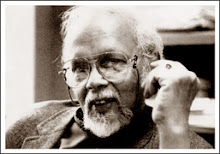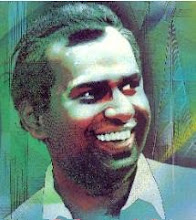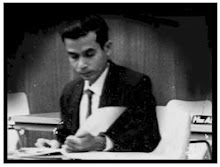Date:21/12/2003
Source: Sunday Observer
"But do you want to know the truth, the real, real truth?" the Doctor asks. Paulina listening from the bedroom gasps when she hears him, his voice, his laugh (he snorts when he laughs) and "the real, real truth". She finds other things, like his smell, the fact that he likes to quote Nietzsche "I think it was Nietzsche..." and that he has a tape of Schubert's Death and the Maiden in his car. The music which "The Doctor" played during the torture and rape...
This is an excerpt from "Paulina" the Sinhala version of Ariel Dorfman's play "Death and the Maiden", which will be out at the Bishop's College Auditorium on the 28th December, at 6.30 pm.
Translated by Sagara Chandrasiri, presented by the Maya Shakthi Theatre Foundation, the play will star Best Actress in the Singapore International Film Festival for her role in "Flying With One Wing"-Anoma Janadari as Paulina, Dharmajith Punarjeewa as Girardo, Anura de Silva as Dr. Roberto and Janakie Edirisinghe as Paulina's Mind. Directed by Dharmajith Punarjeewa to the background music of Schubert who indirectly plays a big part in the play, it is a political and psychological complex battle of wills amongst three characters in post revolutionary Chile after the rule of Dictator Augusto Pinchet.
The trio in question is made up of Paulina, her husband Gerardo and Dr.Roberto-a seemingly friendly stranger who provided Gerardo with a ride home after a car breakdown.
The trouble begins when Paulina claims to recognize Roberto's voice, and accuses him of being the unseen doctor who had subjected her to horrific torture during her days as a prisoner of the country's former government. Roberto flabbergasted, denies any knowledge of such events, but Paulina is determined to have her revenge. The uncertain Gerardo finds himself caught in the middle, forced to decide if his wife is telling the truth or reacting irrationally due to her past trauma.
The confrontation and shifts in power between the three inevitably raises issues of justice and revenge, especially in relationship to the punishment of war criminals.
Limited cast
The setting is bare. Just a sofa, a chair and a table. The play focuses primarily on the acting, which too has a limited cast of just four characters, Dorfman's three and the additional character of Paulina's Mind, which further depicts her inner turmoil.
It is a play about betrayal and terror. Justice and Vengeance. It is about women. Their daily suffering and torment as a result of emotionally lifetime scars undergone through war crimes of torture, rape and medical experimentations. It is a daily haunting of their past which makes it difficult for them to come to terms with their present life, their memory and their identity.
Anoma's performance as Paulina is powerful, tender, angry and painful. The torture she goes through, the brief feelings of doubt, and then the dawning that this is the man she wants. At least that's what she believes. She's torn between justice and vengeance, but most of all she wants the Truth. She wants redemption for what she has suffered, and wants to know Why?
Janakie who plays Paulina's Mind, brings about these multitude of emotions, with violence and passion. Her movements depending on Paulina's quick shifting moods, change from quick rapid movements to slow, almost statue like stillness. Paulina's rape and torture is brought about in a frenzy like dance. Her confusion, hurt and pain, in a more tender, gentle grace. Janakie and Anoma intermingle their roles, with a chemistry which makes the mind and body one, coordinating and combining the physical and emotional pain.
Girardo, Paulina's husband, played by director Dharmajith Punarjeewa is a character with an uncertain conscience. He is the play's voice of sanity. Formerly a student opposition leader, he is now a famous lawyer, appointed by the newly elected president to head up a committee investigating the military human rights abuses.
The final character, the "good" Doctor Roberto is a tantalizing mix of innocence and malice. Anura de Silva speaking of his role, says "Roberto was a good man who turned evil due to succumbing to the temptation his environment offered him".
"Paulina" is a battle between our thirst for revenge and the voice of conscience that call us to a higher form of justice. In the end, we're meant to see that, yes, brutality begets brutality, and to victimize our victimizers is to sink to their level.



































No comments:
Post a Comment